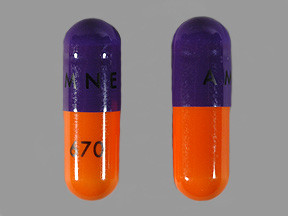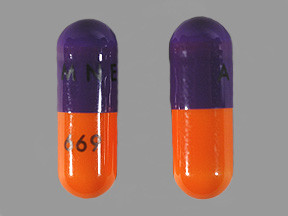ACEBUTOLOL - ORAL
PHONETIC PRONUNCIATION: (A-se-BUE-toe-lol)
COMMON BRAND NAME(S): Sectral
GENERIC NAME(S): acebutolol HCl
Uses
USES: Acebutolol is used to treat high blood pressure and irregular heartbeat (arrhythmia). Lowering high blood pressure helps prevent strokes, heart attacks, and kidney problems. Treating irregular heartbeat helps the heart work better and with less strain. Irregular heartbeats can be serious and may sometimes even lead to a heart attack. This medication belongs to a class of drugs known as beta blockers. It works by blocking the action of certain natural substances in your body, such as epinephrine, on the heart and blood vessels. This effect lowers heart rate, blood pressure, and strain on the heart.
How to use ACEBUTOLOL - ORAL
HOW TO USE: See also Warning section. Take this medication by mouth with or without food as directed by your doctor, usually once or twice daily. The dosage is based on your medical condition and response to treatment. Use this medication regularly to get the most benefit from it. To help you remember, take it at the same time(s) each day. For the treatment of high blood pressure, it may take several weeks before you get the full benefit of this drug. It is important to continue taking this medication even if you feel well. Most people with high blood pressure do not feel sick. Tell your doctor if your condition does not improve or if it worsens (for example, if your routine blood pressure readings remain high or increase).
Side Effects
Precautions
Interactions
Overdose
Images

- color
- bright orange
- shape
- oblong
- imprint
- AMNEAL, 670

- color
- bright orange
- shape
- oblong
- imprint
- Amneal, 669

- color
- bright orange
- shape
- oblong
- imprint
- AMNEAL, 670
Reviews
Faq for ACEBUTOLOL - ORAL
Acebutolol is an oral medication used for treating high blood pressure and preventing certain types of irregular heart rhythms (arrhythmias).
Acebutolol belongs to a class of medications known as beta-blockers. It works by blocking the effects of certain natural substances in the body, such as adrenaline, on the heart and blood vessels. This helps to lower blood pressure and reduce the heart rate.
Common side effects of Acebutolol include dizziness, tiredness, nausea, diarrhea, slow heartbeat, and cold hands/feet. Serious side effects may include difficulty breathing, chest pain, fainting, swelling of the ankles/feet, or mental/mood changes. It is important to seek immediate medical attention for any severe or persistent side effects.
Acebutolol should be taken exactly as prescribed by your doctor. It is typically taken orally with or without food, either once or twice a day. Do not abruptly stop taking Acebutolol without consulting your doctor, as it may cause a sudden increase in blood pressure or heart rate.
It is generally not recommended to use Acebutolol during pregnancy unless the potential benefits outweigh the risks. It may pass into breast milk, so it is important to discuss the risks and benefits with your doctor if you are breastfeeding.
It is generally advised to avoid or limit alcohol consumption while taking Acebutolol. Alcohol can increase the side effects of this medication, such as dizziness or drowsiness.
Yes, Acebutolol may interact with certain medications, including other beta-blockers, calcium channel blockers, digoxin, asthma medications, and certain antidepressants. It is important to inform your doctor about all medications you are currently taking to avoid any potential drug interactions.
The effects of Acebutolol on blood pressure and heart rate may be seen within a few hours to a few days, but it may take several weeks for the full benefits to be realized. It is important to continue taking the medication as prescribed, even if you feel well.
If you miss a dose of Acebutolol, take it as soon as you remember. However, if it is close to the time for your next dose, skip the missed dose and resume your regular dosing schedule. Do not double the dose to catch up.
Warning
WARNING: Do not stop taking this medication without consulting your doctor. Some conditions may become worse when you suddenly stop this drug. Some people who have suddenly stopped taking similar drugs have had chest pain, heart attack, and irregular heartbeat. If your doctor decides you should no longer use this drug, he or she may direct you to gradually decrease your dose over 1 to 2 weeks. When gradually stopping this medication, it is recommended that you temporarily limit physical activity to decrease strain on the heart. Get medical help right away if you develop chest pain/tightness/pressure, chest pain spreading to the jaw/neck/arm, unusual sweating, trouble breathing, or fast/irregular heartbeat.
Disclaimer
IMPORTANT: HOW TO USE THIS INFORMATION: This is a summary and does NOT have all possible information about this product. This information does not assure that this product is safe, effective, or appropriate for you. This information is not individual medical advice and does not substitute for the advice of your health care professional. Always ask your health care professional for complete information about this product and your specific health needs.
No Reviews Yet